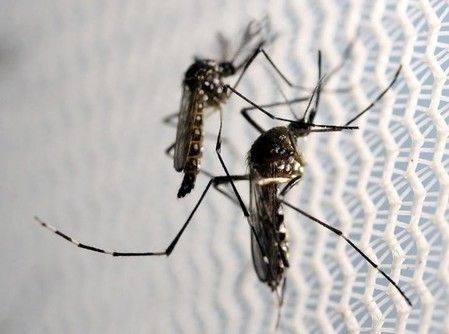Advertisement
New York City subway transit system unveils plan to fight Zika threat

By Gina Cherelus
NEW YORK (Reuters) – Track workers of New York City’s subway system, the largest in the country, will drop bug-killing larvicide tablets into puddles of stagnant water to help combat and stem any threat of mosquitoes carrying the Zika virus, the governor’s office revealed.
Last week, health authorities in Florida reported the first signs of local transmission of Zika in the continental United States, adding to the global spread of the virus which has affected more than 50 countries and territories.
“As the season is heating up, we are also increasing our efforts twofold,” New York Governor Andrew Cuomo told reporters on Tuesday, flanked by officials from the state’s Department of Health (DOH) and the Metropolitan Transportation Authority.
Cuomo had visited subway stations in Manhattan. He said the standing bodies of water between tracks could be breeding ground for mosquitoes. Workers will use more than 16,000 larvicide tablets to try to reduce the risk.
More than 5.5 million people ride the city’s subway system every weekday.
As of this week, 537 travel-related cases of Zika in New York state have been confirmed, with more than 400 of those occurring in New York City, DOH officials said on Tuesday. None of the Zika cases in the state were transmitted by mosquito.
The aedes aegypti mosquito, common in the southern part of the United States, can also carry other diseases such as yellow fever, dengue and Chikungunya. But they only travel about 200 yards from the standing water where they hatched, experts say.
New York state officials began intensifying Zika prevention efforts in March, including by offering the larvicide tablets to homeowners at no cost.
“If the homeowners are doing what they need to do, we’ve been speaking with commercial property owners who are aware of it and then the government facilities are ahead of it, then we’re doing everything we can do and that is the goal,” Cuomo said.
(Reporting by Gina Cherelus; Editing by Daniel Wallis and Bernard Orr)










